New Edge Microbials’ nature tech approach offers hope for food security, post-synthetics
‘Nature tech’ is gathering pace, offering adaptive soil microbial solutions that help scale up the planet’s ability to heal itself, and improve food security. Ben Barlow, Managing Director of New Edge Microbials and evokeAG. 2023 speaker, is ahead of the curve – with proven biological inputs that drastically reduce a crop’s carbon footprint and deliver a host of production outcomes for farmers.
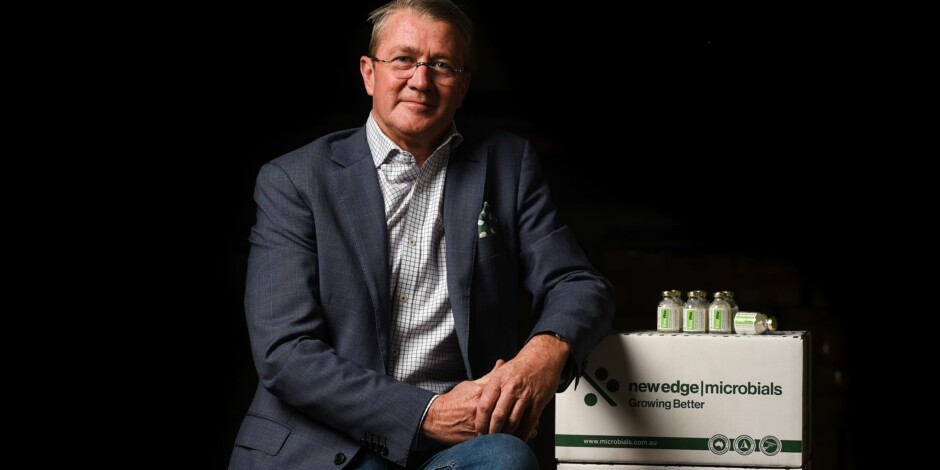 Ben Barlow, Managing Director of New Edge Microbials. Photography by Mark Jesser.
Ben Barlow, Managing Director of New Edge Microbials. Photography by Mark Jesser.
As climate, biodiversity and biosecurity crises threaten long-term food security, innovators are looking to Mother Earth for answers. ‘Nature tech’ describes the rapidly emerging category of tech-based solutions that mimic, build on, or accelerate the power of nature to satisfy our own needs – and those of the planet.
It’s an approach that Managing Director of New Edge Microbials (NEM), Ben Barlow, passionately advocates for. One of a long line of farmers, Ben still remembers the smell of the soil when they’d open up new land for cropping in the 1970s.
“The earth smelled different then. That says (and there’s lots of documentary evidence to prove) that our soil is getting hammered by continuous cropping and the application of synthetic inputs needed to maintain that practice.”
RELATED: Experimenting with whiskey waste pays off in the paddock
NEM is an Australian nature tech pioneer, mission-driven to use the best science to support sustainable farming and a healthier planet. Manufactured in Albury, NSW, NEM’s expanding product range uses naturally occurring soil bacteria to restore the soil microbiome and boost production, without the need for synthetic fertilisers.
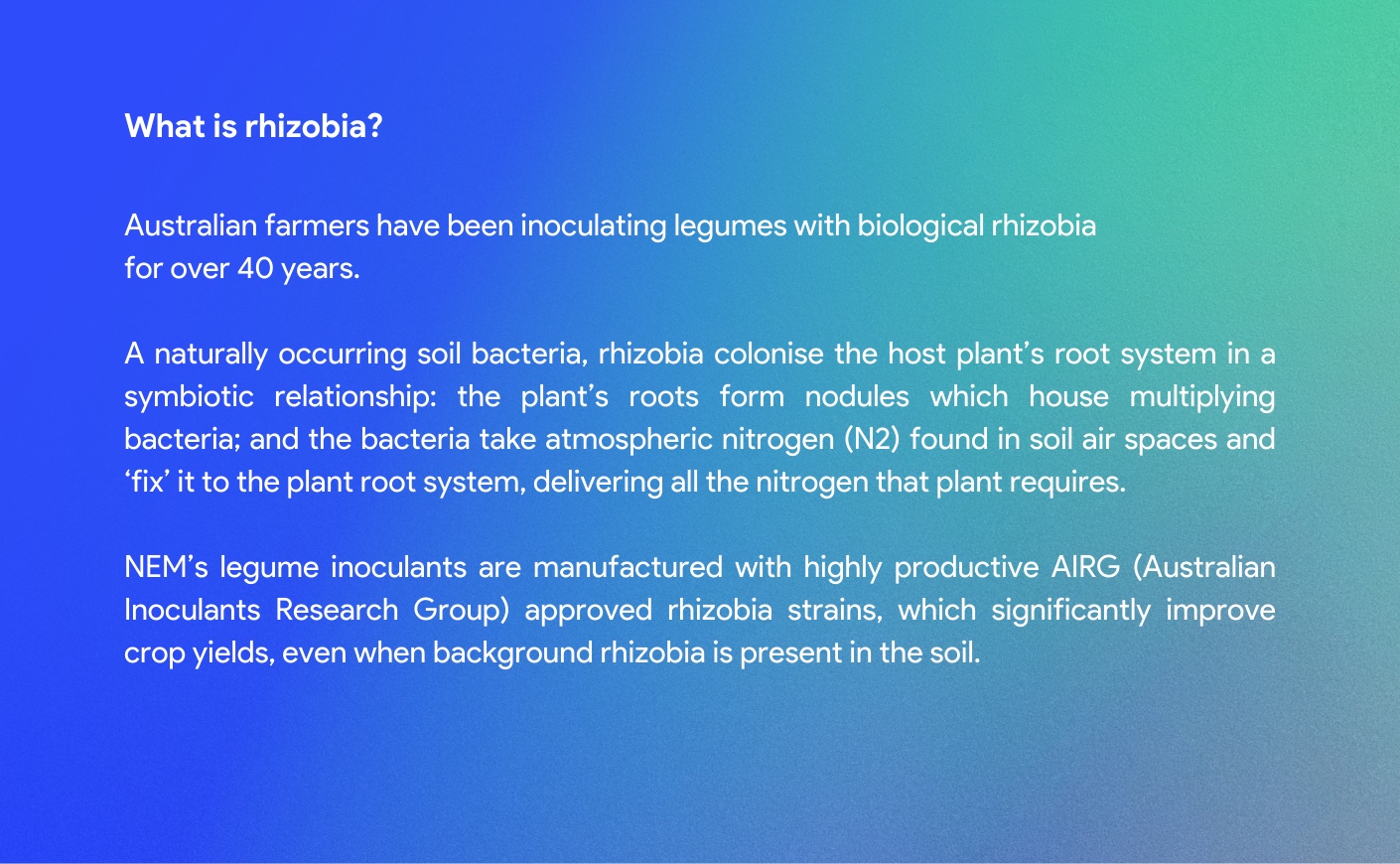 “Our core business is providing on-seed inoculants that use beneficial rhizobia to fix nitrogen in legume crops,” explained Ben. The result is an increase in soil organic matter, improved soil and plant health, significantly lower input costs and a dramatic reduction in greenhouse gas emissions.
“Our core business is providing on-seed inoculants that use beneficial rhizobia to fix nitrogen in legume crops,” explained Ben. The result is an increase in soil organic matter, improved soil and plant health, significantly lower input costs and a dramatic reduction in greenhouse gas emissions.
“10 to 12 tonnes of carbon is emitted to produce just one tonne of synthetic nitrogen. We avoid that. And it’s all from harnessing the power of nature.”
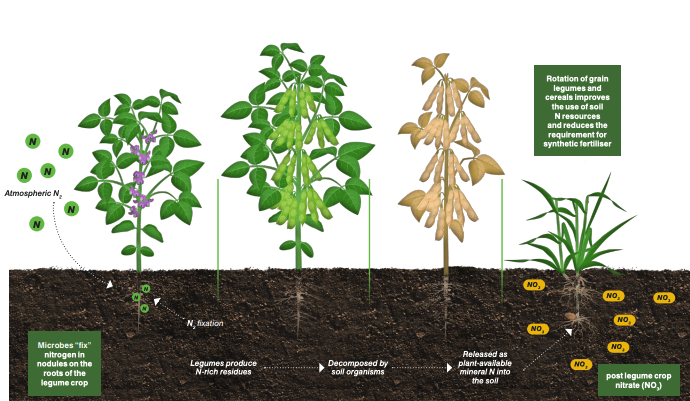
Rhizobium: a nature tech approach to boosting nitrogen
New Edge Microbials: An overnight success, 20 years in the making
“NEM’s customers spend roughly $10 per hectare on biological seed inoculant, formulated as either liquids, granules, or concentrated vials. In return, they get the equivalent of about $180 worth of synthetic nitrogen in today’s terms in the year applied and in turn, fixes the nitrogen available for the following year’s cereal or oilseed rotation. The economics are clear,” said Ben.
RELATED: Agronomeye: The 360-view to help farmers turbocharge business
But NEM’s precipitous growth (25% year-on-year for the last four years) isn’t driven by the fertiliser price crisis. It’s because NEM delivers consistent, proven products that farmers have grown to trust, working closely with the Riverine Plains, an independent farmer systems group in north-east Victoria and southern New South Wales, various agronomists and 800 rural distributors nationwide.
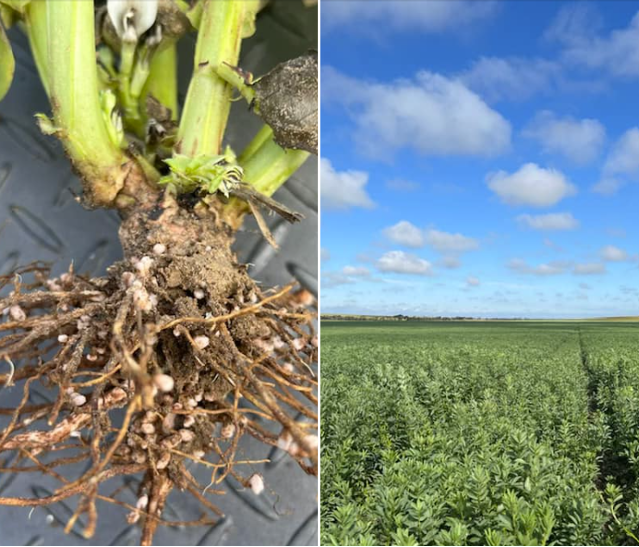
Nodulation on faba beans after inoculation with NEM’s rhizobia. Image courtesy of Nutrien Ag Solutions, Kaniva (West Wimmera region of Victoria.)
“Biologicals are regarded as a sexy new science,” Ben explained. “But your reputation comes on the back of a turtle and leaves on the back of a galloping horse. So we’ve been working in the background whilst flying under the radar, quietly releasing products rooted in deep science and letting them speak for themselves.”
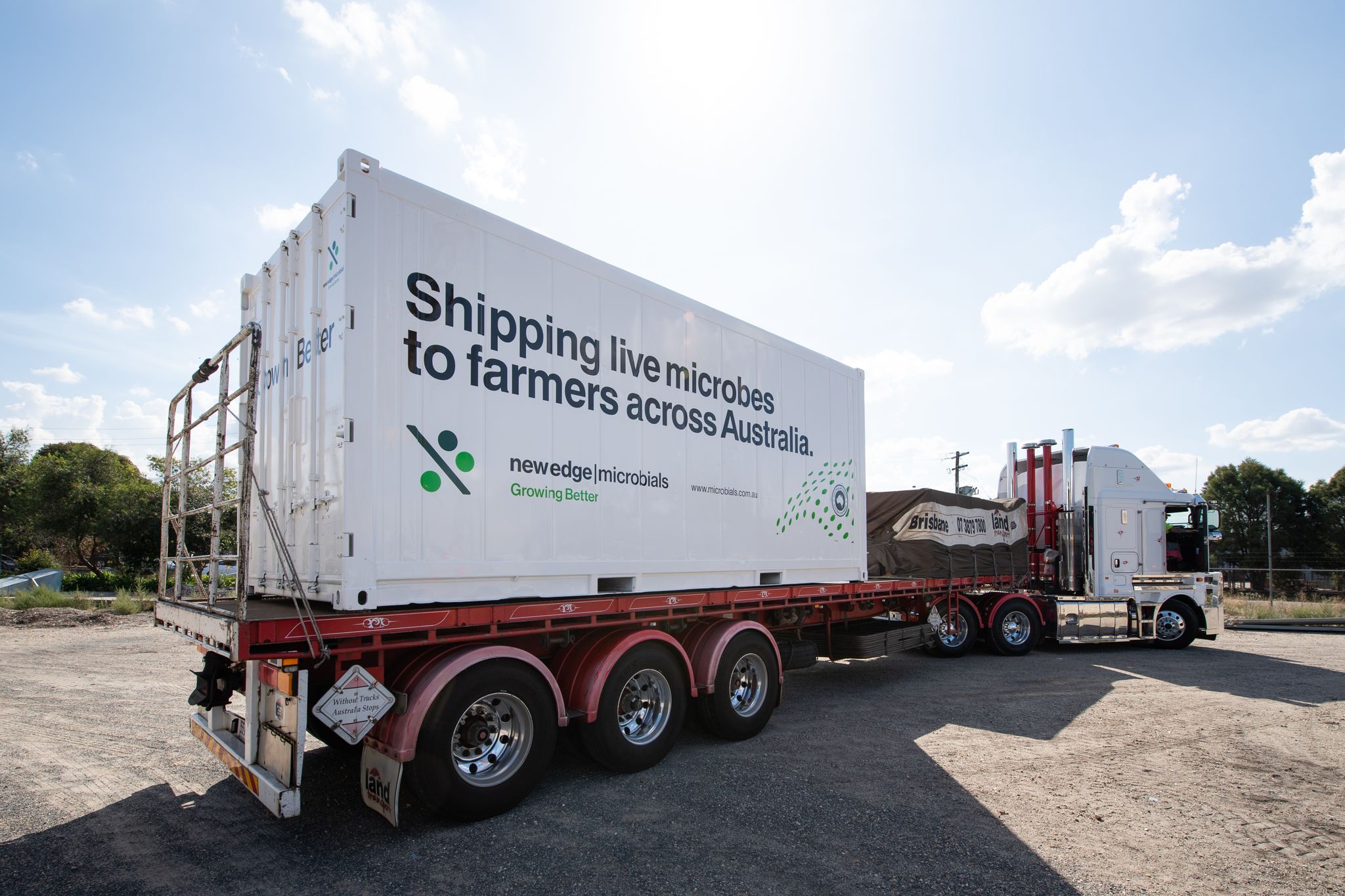
NEM now commands 45% of the Australian market for biologicals in legumes, with growing export markets in South America, the United States and Europe – yielding success in market segments known for high barriers to entry. Companies need to find the right bacteria, determine the right formulation for ease of use and shelf-life, and produce it at scale, at the right cost. With up to 80,000 bugs per gram of soil, it can easily take decades and millions of dollars to get a product on-shelf. But NEM does it in a fraction of the time.
RELATED: evokeAG. 2023 Program released
“We’ve secured exclusive agricultural rights to one of the world’s largest known microbial libraries, containing more than 450,000 soil microbes from thousands of samples taken across Australia,” explained Ben. “It amounts to over 40 years of research by pre-eminent Australian soil scientists.”
It’s a huge competitive advantage, explained Ben. “Let’s say the US or Europe has been testing a strain of interest for years; that’s a clue to us. Instead of looking everywhere, the library gives us a ‘nearest to the pin’ opportunity to find an Indigenous Australian strain that performs the same way. It means, at most, we’re two to five years from discovery, to a new product.”
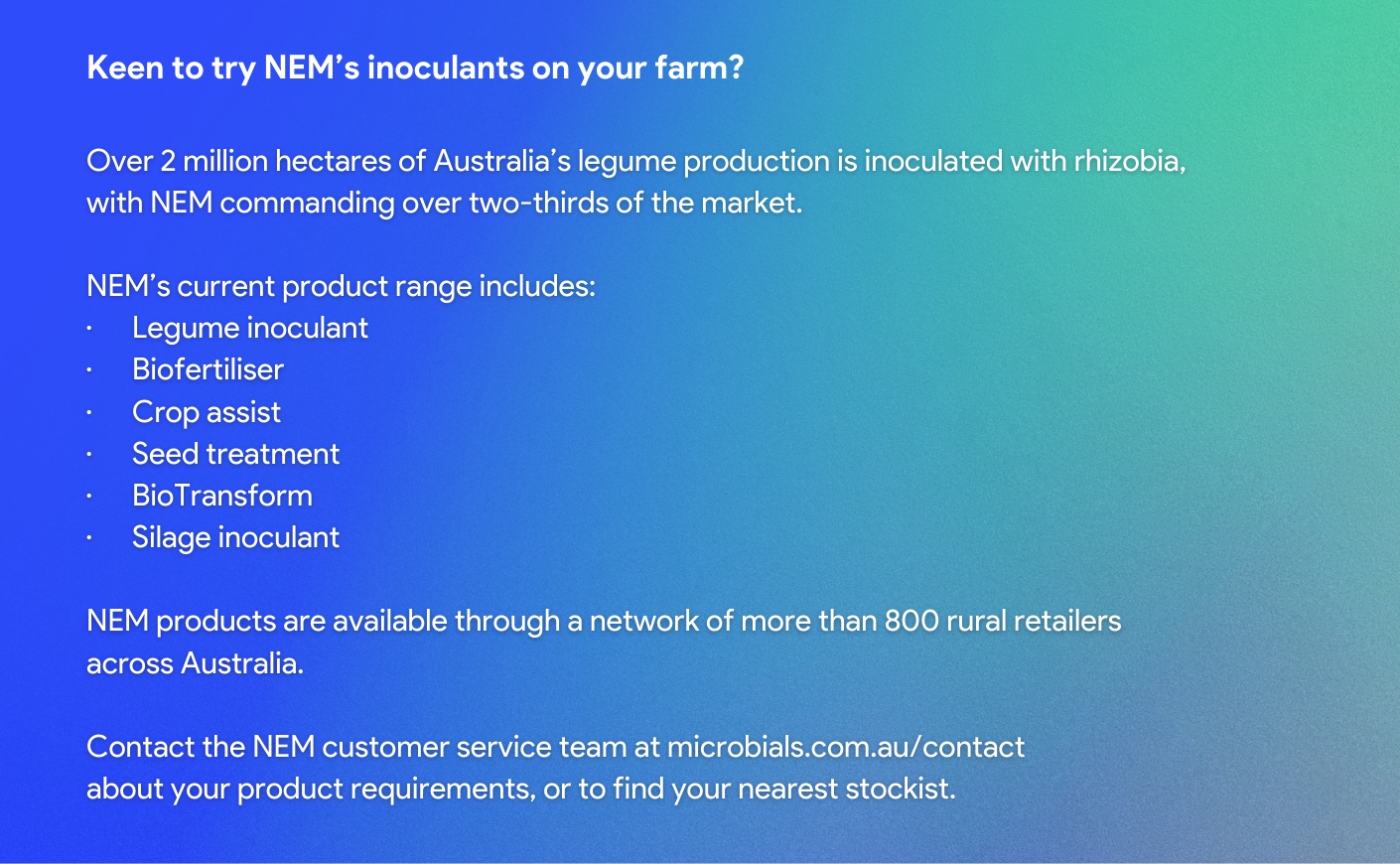
Using R&D to shape an enduring legacy
But the opportunity – and planetary need – for biologicals extends beyond legumes. NEM’s research frontiers are in cereals and oilseeds, an exponentially larger market in both scale and sustainability impact. Driving their quest is a sophisticated R&D platform predicated on building an enduring legacy for Australian agriculture: reduced dependence on imported synthetic inputs, and a thriving R&D ecosystem.
RELATED: Unlocking the potential of autonomous agriculture
NEM’s ‘R&D flywheel’ is their solution, a cyclical approach which sees the company invest in research to deliver more products that generate more profits to fund more research that delivers more products.
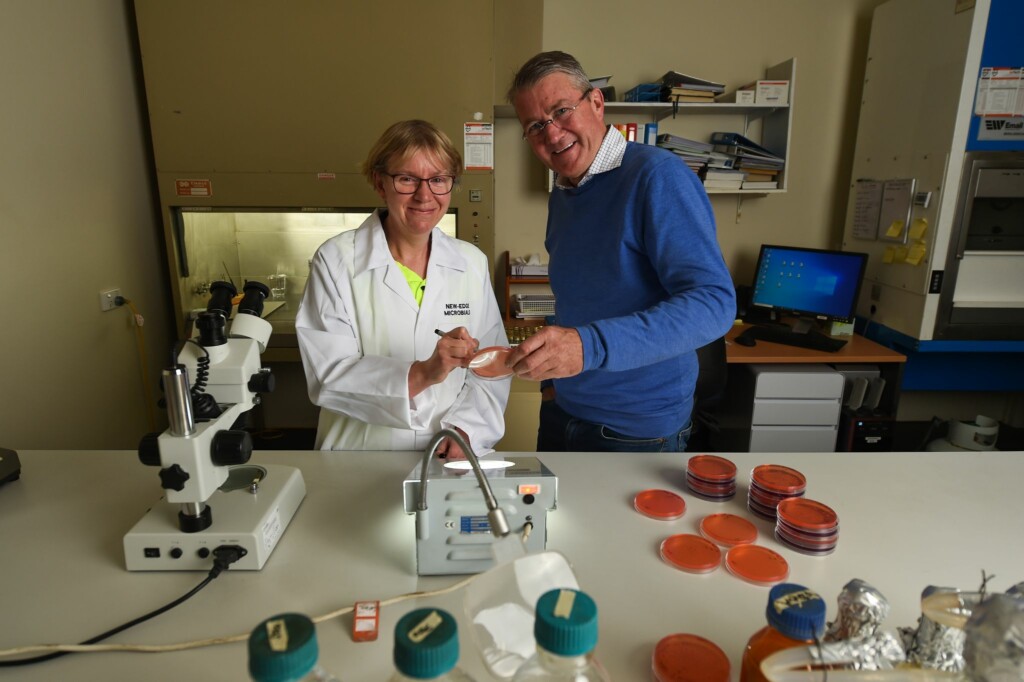
Ben Barlow, Managing Director of New Edge Microbials with Elissa Barrett, NEM Laboratory Manager.
“Seven preeminent Australian soil scientists and microbiologists oversee our R&D effort through the Scientific Advisory Board. They’ve set long-term programs that researchers value, because it provides secure funding and a clear end point – which is to get science off the lab shelf and into a box,” said Ben.
RELATED: How a maverick approach can supercharge innovation – Mee evokeAG. Keynote Speaker Scott Amyx
Right now, NEM invests $5 million per year out of profits into four priority areas:
- promoting plant growth,
- increasing nitrogen and phosphorus uptake,
- reducing abiotic stress in a drying climate,
- increasing soil carbon.
To leverage every dollar, NEM draws on collaboration and commercialisation partnerships with leading centres of Australian soil science and biotechnology, including the CSIRO, and five eminent natural sciences universities.
“If just one or two research projects pays off and we reach the success we’d like to in the next decade, we’ll be putting something like $20-25 million per year back into Australia’s R&D ecosystem.”
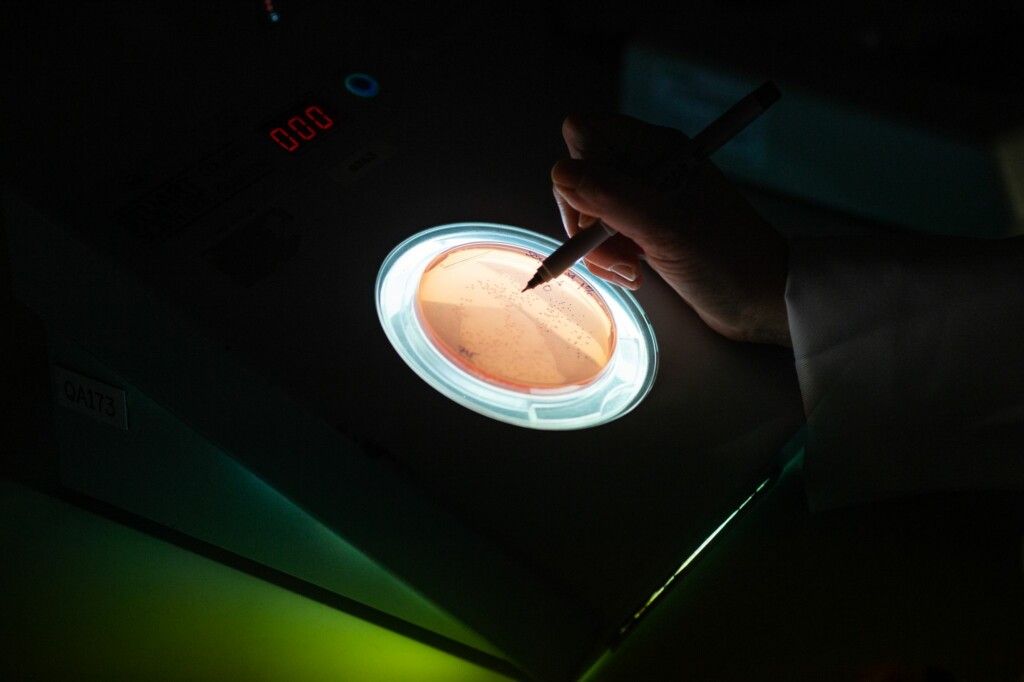
Observing microbes in the New Edge Microbials lab.
Protecting Australia’s clean, green image
The tide has turned against synthetic fertilisers, driven by consumer demands for climate-friendly alternatives. The Canadian government has targeted a 30% reduction in nitrous oxide by 2030; the European Union has gone one step further, mandating a 50% reduction in synthetic fertiliser use by 2030.
It’s an outcome Ben sees as inevitable for Australia, eventually. And with a drastically shortened lead time and a proven, scalable domestic production platform, NEM’s role in helping Australian farmers respond could be crucial.
RELATED: Ceres Tag launches reusable smart ear tag for US market expansion
“Right now, Australia sells commodities at a premium for being clean and green. But it’s feasible that in a decade from now, we could find ourselves in a global marketplace where we’ve got some of the dirtiest agricultural produce simply because the rest of the world changed ahead of us.”
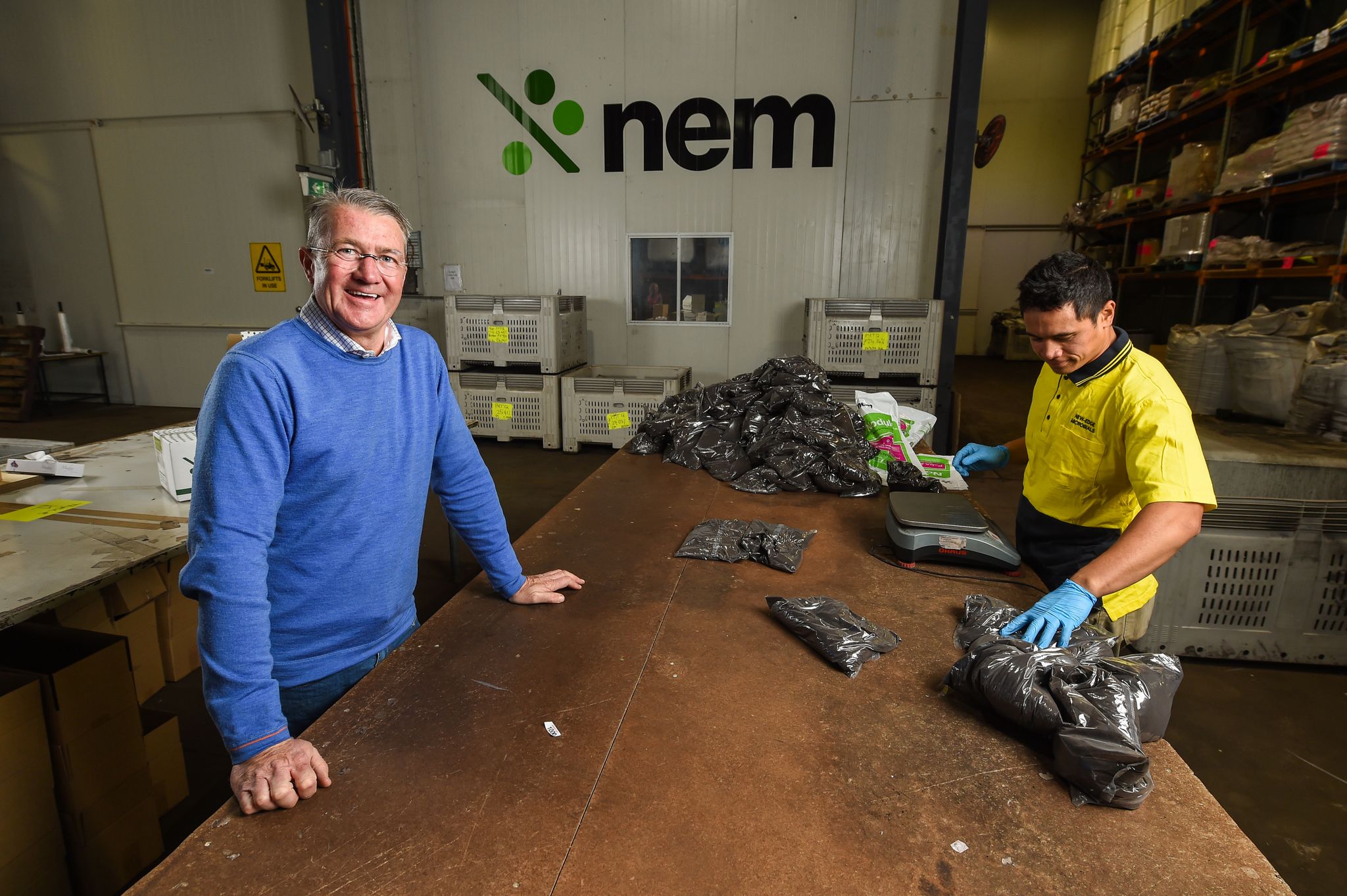
Ben Barlow, Managing Director of New Edge Microbials with Elias Tukaroa from NEM’s compliance team.
“If we go back a decade, biologicals was a $100 million global industry. Now it’s $10 billion and climbing to $25 billion by 2030. There are 180-odd biological registrations in front of the EU at the moment, but only three for agricultural chemicals. So, the shift isn’t coming; it’s happening.”
“NEM might spend $25 million on research over the next five years and not fire a shot. But it’s a focused risk that we’ve decided to take. Because if no one else does, what would the future for Australian agriculture look like?”
“In five years’ time, we’ll know which way this lands.”
Want to learn more about New Edge Microbials and their innovative work to support global food security? Hear from Ben Barlow, an official speaker and Silver Partner at the AgriFutures evokeAG. 2023 Down to Earth event on 21-22 February 2023 in Adelaide, South Australia at the Adelaide Convention Centre.
Bringing together the best and brightest together to talk about how innovation and technology collide, intersect, connect, translate, complement, and challenge our most important assets – our people, our farms, our soil, our water, and our Earth. Tickets are on sale here.
View the full two-day program, including all speakers and partners involved in evokeAG. 2023.
Enjoyed this article? Want to learn more about the Asia Pacific region’s innovative agrifood tech ecosystem? Sign up for our newsletter here and receive fresh stories about global leaders, farmers, startups and innovators driving collaborative change.
